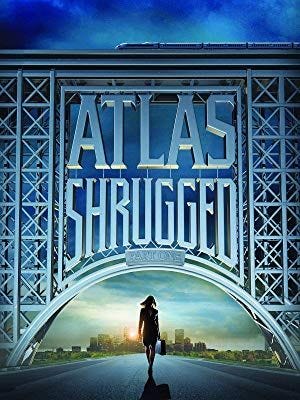What's The Second Most Influential Book After the Bible?
Its author escaped a real-life Hell and brought us wisdom — and a warning.
Years ago, I was walking down a street in San Francisco and happened to overhear a passing conversation between two women. One of them said that she had bought a book as a gift for her daughter’s birthday. It was Atlas Shrugged. Her friend brought them to a sudden stop on the sidewalk, put her hand on the woman’s shoulder, and said very seriously “Be careful. That book changes people.”
She wasn’t wrong. A Library of Congress survey asked readers to name the book that had influenced them the most. Atlas Shrugged ranked second only to the Bible.
At a surface level, Atlas Shrugged might seem uncontroversial. It’s a story about creative, enterprising industrialists working hard and building great things — and about their battles with a variety of cynical, envious, and predatory people trying to control them, steal their work, or stop them.
But underneath that surface, it’s much more. It’s a paean to the creative spirit and a powerful and persuasive personal call to action, to be “the best within us.”
As one of the heroes of the book says near the end, “Do not let your fire go out, spark by irreplaceable spark in the hopeless swamps of the not-quite, the not-yet, and the not-at-all. Do not let the hero in your soul perish in lonely frustration for the life you deserved and have never been able to reach. The world you desire can be won. It exists.. it is real.. it is possible.. it's yours.”
Millions have been inspired by that message, so much so that there are multiple organizations promoting Atlas Shrugged and its ideals, most notably the Atlas Society.
Given its positive character, why then is Atlas Shrugged so hated by the political left? Because heroic individualism and the creative spirit — the values it champions — require human liberty and respect for individual achievement to exist. You can’t be your best self when you have no latitude to be your best self, when you’re heavily controlled and taxed, and made to feel that nothing you accomplish or create really matters but is simply your accidental contribution to the collective effort of society. This linkage between personal creativity and the freedom to be creative comes through loud and clear in Atlas Shrugged.
The book’s author — Ayn Rand — grew up in the world’s very first leftist “paradise,” early communist Russia, and saw firsthand what the wholesale loss of human liberty really meant. So she knew down to her bones liberty’s importance and the threat to it posed by leftist ideologies. From her experience, she developed a profound critical understanding of collectivist thinking that to this day challenges and threatens it at its very root.
That’s why, forty year after her death, the left still refers to Ayn Rand as “the most dangerous woman in America.” Atlas Shrugged stands fast as her intellectual Gibraltar, an intellectual bulwark they can’t destroy, and which continues to inspire and fortify those who recognize the importance of liberty and the danger of authoritarian collectivism. There is even a book highlighting its importance to the modern pro-liberty movement, entitled It Usually Begins With Ayn Rand.
But if you choose to read Atlas Shrugged, be careful who you tell. It’s not a book you are supposed to read these days.
All the more reason to do so.




